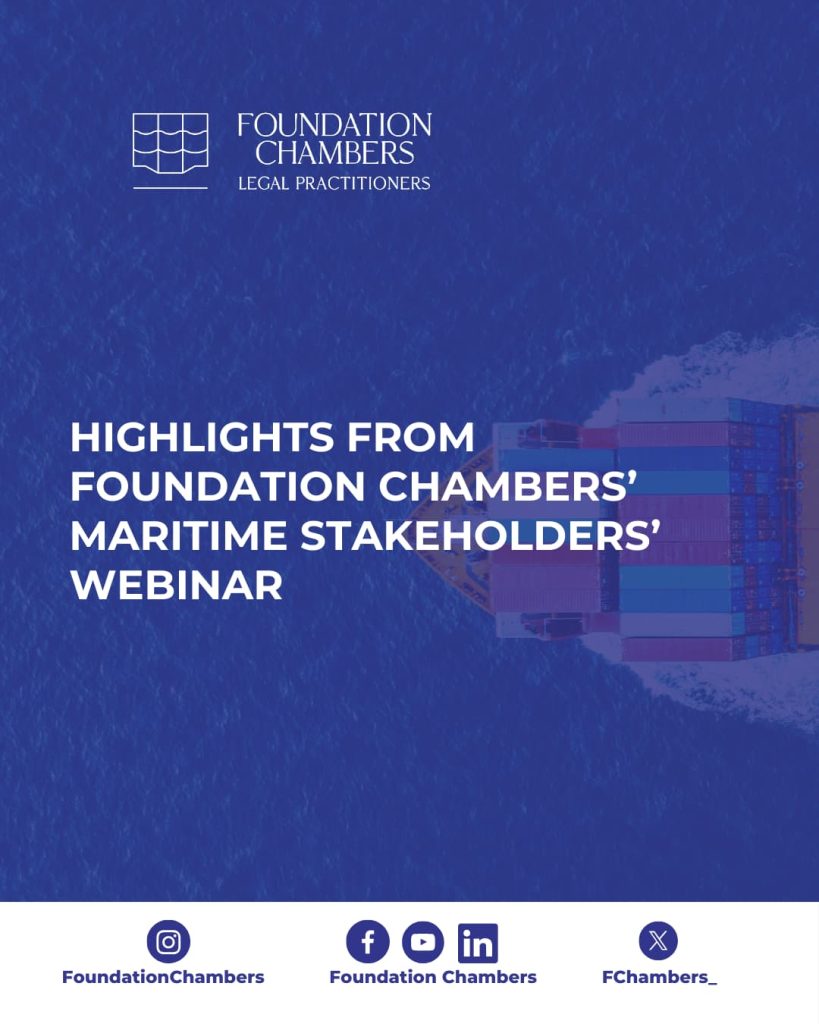On 4th April 2025, Foundation Chambers hosted a Maritime Webinar with Comptroller Babatunde Olomu fsi PhD, of the Apapa Port Command, Nigeria Customs Service, Mrs. Gloria Kanabe, the Founder/Managing Partner, Hudson Gee Limited and key stakeholders and representatives from shipping companies and terminal operators.
Here are some of the highlights of the Webinar:
Q: Are government-owned cargos exempt from the payment of duties? Can such consignments be classified as overtime cargo or be subject to auction?
A: Government-owned cargo is not automatically exempt from duty. However, the President of the Federal Republic of Nigeria has the discretion to grant waivers or concessions on such imports when deemed necessary. If a government consignment exceeds the stipulated dwelling time, it may be classified as overtime cargo. While preferential treatment is sometimes accorded to such cargo especially for reasons of national security or economic significance, it remains subject to disposal protocols. In certain cases, the cargo may be auctioned back to the government agency, but applicable duties must still be paid.
Q: What mechanisms are in place to promote transparency, accountability, and compliance with legal procedures in the disposal of overtime cargo?
A: The Nigeria Customs Service has instituted several measures to uphold transparency in the disposal process. Key among them is the involvement of independent oversight bodies such as the Association of Bidders, the Office of the Auditor General, and, in some instances, the Independent Corrupt Practices Commission (ICPC). These entities participate or observe disposal processes, while periodic audits of Customs’ books serve as a central pillar for ensuring accountability.
Q: Is there a risk of importers manipulating the system by delaying clearance so that cargo is declared as overtime, thereby avoiding demurrage or storage charges?
A: Yes, such risks exist. Some importers may deliberately delay the clearance of their goods, hoping to have them declared as overtime cargo. These consignments may subsequently be auctioned to third parties with ties to the original consignee, potentially circumventing storage and demurrage charges. However, identifying and preventing such schemes can be difficult for the Customs Service, as these actions may not be immediately evident during standard operations.
Quote: The benefit of disposing overtime cargo is that it decongests the seaport area. The port is not a warehouse; the importer’s warehouse is the final destination.


